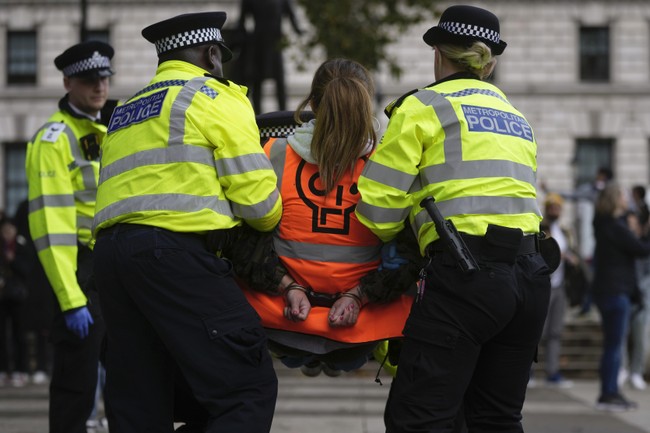
Authorities in the United Kingdom have decided to stop treating shoplifting as a crime, a move that has drawn significant criticism from retailers. Chris Wootton, the chief financial officer of Frasers Group, which owns well-known brands like Sports Direct and House of Fraser, has raised alarms over rising thefts in stores. He stated that the police are no longer taking shoplifting seriously, claiming, “It doesn’t help that the police have basically abandoned shoplifting as a crime.”
This shift in policy comes amid a growing epidemic of retail theft and violence against staff, which has cost businesses billions of pounds. Retailers across the UK, frustrated by the increasing crime rates, contend that the lack of police action is contributing to a culture of lawlessness. Wootton’s comments point to a broader concern about the safety of employees and the viability of retail operations in the current climate.
Many retailers have expressed their dismay at the lack of police presence and intervention. Reports indicate that incidents of theft have surged, prompting calls for a more robust response from law enforcement. The decision not to prioritize shoplifting is seen as a troubling indicator of the challenges facing the retail sector.
Impacts on Retail and Society
As shoplifting incidents rise, the potential consequences for the retail landscape are alarming. Stores may be forced to close, resulting in job losses and diminished local economies. Some retailers fear that without a strong police response, shoplifting will escalate further, undermining the public’s confidence in safety and security while shopping.
Wootton’s remarks highlight a growing sentiment among businesses that the police are more focused on monitoring social media for “hate speech” than addressing tangible crime. He noted that if theft were to become normalized, it would lead to a breakdown of the social contract within communities.
The situation has sparked a heated debate regarding the role of police in contemporary society. Critics argue that diverting resources towards monitoring online behavior detracts from addressing real-world issues like theft and violence. Some believe this lack of focus on traditional crime could lead to a further decline in public safety and welfare.
Public Reaction and Future Outlook
Public reaction has been mixed, with some expressing disbelief at the police’s new approach. Many citizens are concerned that this could lead to an environment where lawlessness becomes more prevalent. The idea that individuals may feel emboldened to steal without fear of repercussions raises significant questions about the future of policing in the UK.
While some advocate for alternative forms of crime prevention, others feel a return to traditional law enforcement methods is essential to curb rising crime rates. The discussion illustrates the delicate balance between maintaining public order and addressing the root causes of crime.
As the UK grapples with these challenges, the decision to de-emphasize shoplifting as a crime reflects broader societal changes. The implications of this policy shift could resonate beyond retail, influencing perceptions of law enforcement and community safety for years to come.
In conclusion, the decision by UK police to stop treating shoplifting as a crime highlights a significant shift in law enforcement priorities. As retailers face increasing theft and safety concerns, the need for effective policing becomes more urgent. With the retail sector at a crossroads, stakeholders must consider how to navigate these complexities to ensure a safe and viable shopping environment for all.







